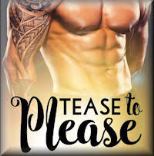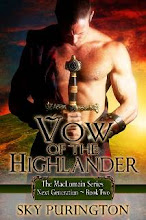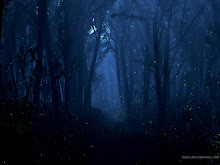Today it’s my pleasure to welcome over Julie Doherty, author
of Scent of the Soul, a Historical Romance.
Publisher: Soul Mate Publishing
Date of Publication:
February 11, 2015
ISBN:
978-1-61935-705-1
ASIN: B00SZ0SKUE
Number of pages: 288
Word Count: 91,000
Cover Artist: Leah Suttle
 Book Description
Book Description
In twelfth century Scotland, it took a half-Gael with a
Viking name to restore the clans to their rightful lands. Once an exile,
Somerled the Mighty now dominates the west. He’s making alliances, expanding
his territory, and proposing marriage to the Manx princess.
It’s a bad time to fall for Breagha, a torc-wearing slave
with a supernatural sense of smell.
Somerled resists the intense attraction to a woman who
offers no political gain, and he won’t have a mistress making demands on him
while he’s negotiating a marriage his people need. Besides, Breagha belongs to
a rival king, one whose fresh alliance Somerled can’t afford to lose.
It’s when Breagha vanishes that Somerled realizes just how
much he needs her. He abandons his marriage plans to search for her, unprepared
for the evil lurking in the shadowy recesses of Ireland—a lustful demon who
will stop at nothing to keep Breagha for himself.
Book Trailer
Available at Amazon Amazon
UK Amazon
Canada
Giveaway! Be sure to enter the Rafflecopter after this post for a
chance to win one of the following: 10 bars of soap open to US Shipping or one
of five Kindle Gift Copies of Scent of the Soul.
Let’s Interview!
What inspired you to write this book?
It was a combination of things. The first occurred at a gas
station while I was waiting in line to pay. A man stepped into line behind me,
and I felt this unbelievable energy emanating from him. It was really bizarre,
because he was not the sort of guy I’d ever notice. In fact, if I met him in an
alley, I’d probably run the other way, but as he stood behind me, I could feel
the heat of him against my back. It’s been about twenty years since that happened,
and I’ve never forgotten the power of it. I’ve often wondered why I found him
so magnetic. There was nothing sexual about it—just a magnetic pull, like I
already knew him somehow. Were we soul mates in a past life? Were our lives
somehow meant to connect? I’ll never find out, because I paid for my gas and
ran out of there like my pants were on fire. It’s crazy, I know, but it led to
the question: what would happen if someone bumped into a soul mate from a past
life? Would we recognize him/her? How?
It wasn’t until later that I decided to write a novel
featuring reuniting soul mates. I was researching my ancestry at the time, and
I came across Somerled of Argyll. Although much of his story has been lost to
time, we know he was a hero long before Robert the Bruce and William Wallace.
In fact, he’s the progenitor of many of the Highland clans so popular in
fiction today. Without him, those clans may have disappeared altogether, since
it was Somerled who wrenched Scottish lands from the hands of the Vikings. He’s also credited with inventing the moveable
stern rudder, which changed the way men sailed. If that’s not enough to earn a
spot in a novel, what is?
I combined the “soul mate recognition” spark with Somerled,
threw in a little supernatural scenting ability, and SCENT OF THE SOUL was
born. Readers will recognize the “gas station event” in the scene where
Somerled appears behind Breagha in the slave corner.
How did you come up with the title?
My female character recognizes Somerled by scent, so SCENT
OF THE SOUL made perfect sense.
If you could spend an hour in real life with one of your
characters, who would it be and why?
Somerled, but I’d want more than an hour. As for why, well,
heh heh.
Tell us a little bit about the conflict in your story.
Somerled has risen from obscurity in western Scotland. He
plans to cement his position as a man of considerable wealth and influence by
marrying the Manx princess, but when he meets Breagha, a slave with a
supernatural sense of smell, she turns his world upside-down. He resists the
intense attraction, knowing Breagha offers no political gain, and he can’t have
a mistress making demands on him while he’s negotiating a marriage his people
need. Besides, Breagha belongs to a rival king, one whose fresh alliance
Somerled can’t afford to lose.
Somerled thinks he has time to decide between power and love.
What he doesn’t know is someone else wants Breagha, too—someone who will stop
at nothing to keep her for himself.
Tell us about your book cover and how it relates to your
story.
Somerled was a twelfth century warrior king with a vast
fleet. It seemed only fitting to feature a longship, since he owned many of
them. The cover image hints of a voyage to some mysterious place, which is
pretty much what happens in the novel. We journey with Somerled, not to a
place, but to himself . . . and to fulfillment.
Are you currently working on another story? If so, we’d love
some details.
I finished a second novel called SCATTERED SEEDS. This story
features Ulster-Scots Edward and Henry McConnell, who flee impoverished, eighteenth
century Ireland with the one valuable thing they still own—a torc that once
belonged to Somerled of Argyll, their ancestor. Unfortunately, they arrive in Philadelphia
at the outset of the French and Indian War.
Currently, I am writing my third novel, which sees one of
Somerled’s present-day descendants unearthing a torc on her Pennsylvania farm.
Curious about its origins, she travels to Scotland to investigate, where she’ll
find more than she bargained for.
What sort of personality does your hero have?
Somerled is a passionate and driven man with a wicked temper
and an inferiority complex due to past insults and his mother’s Norse blood.
Did you enjoy writing one scene above all the rest? If so,
share.
I loved writing the scene where Peader the monk is cooking
turnips over an open flame because I was furious at someone in real life that
day. The monk paid the price, unfortunately.
Tell us about your favorite writing environment. Is it
indoors, outdoors, a special room, etc.
Believe it or not, my car. It’s the only place I can find
complete privacy.
Thank you so much for the spotlight and interview. I know
how much time blogging takes. I truly appreciate your dedication and
willingness to share my work.
My pleasure, Julie. Wishing you much success. Scent of the Soul sounds like an amazing read.
My pleasure, Julie. Wishing you much success. Scent of the Soul sounds like an amazing read.
Excerpt
As Godred’s oarsmen shoved off from the jetty, Somerled
wondered if there was any man less suitable to deliver a marriage proposal.
Godred of Dublin was coarse, marginally Christian—indeed, marginally sane—and
easily riled. Nevertheless, King Olaf liked him, and for that reason alone,
Somerled had selected him as his envoy.
“No side trips,” Somerled shouted before Godred was too far
away to hear. “Ye have three places to go and that’s it: the Isle of Man, your
clan, and back here.” Godred was prone to unscheduled detours.
Unless bad weather or the scent of easy plunder pulled
Godred and his thirty oarsmen off course, Somerled would have Olaf’s answer in
a few days. If Olaf agreed to the marriage, Somerled would add a wife to the
items decorating his new castle at Finlaggan and eventually, the Isle of Man to
his expanding area of influence.
The nobles would respect him then. Half-breed or not.
Behind him, a door squealed on one of the two guardhouses
standing sentinel over the Sound of Islay. The small building spat out Hakon,
his chief guard, another man of Dublin birth and temperament. Hakon strode the
length of the jetty to join him. “I have every confidence the Norns will weave
Godred a successful journey, my lord king,” he said, his words puffing white
clouds above his tawny sheepskin cape.
“If your goddesses have woven anything, it’s an unfortunate
headwind,” Somerled said. “Godred is forced to tack.” He closed his cloak and
secured it at his throat with a brooch he once plucked from a Viking who no
longer needed it. “The wind promises hail. My proposal will be delayed.”
“Aye, likely,” Hakon said, his hair and beard whipping into
copper clouds, “but it will hasten Olaf’s reply. Do not despair, my lord.
Ragnhilde will marry ye soon enough.”
Despair? Somerled stifled a laugh. Did Hakon think he had
feelings for a lassie he had never met? He was about to tease his guard about
being a romantic when Hakon stiffened.
“Another ship,” Hakon said, looking past Somerled’s
shoulder.
Somerled spun around to inspect the northwestern waters of
the channel separating Jura and Islay—the jewel of the Hebrides and the island
that served as the seat of his burgeoning kingdom. “Where?” he asked,
squinting.
Hakon thrust a finger toward the fog bank blanketing the
horizon. “There, at the promontory, in that pale blue strip of water. See it?”
At first, Somerled saw nothing but swooping terns and ranks
of swells. Then, an unadorned sail appeared. It crested on a wave, dipped low,
and vanished.
“Should I sound the horn?” Hakon asked.
Somerled raked his fingers through the coarse, wheaten mess
slapping at his eyes and held it at his nape while he considered his response.
Behind them, the signal tower on Ben Vicar was smoke-free. Across the sound,
the towers on the frosty Paps of Jura were likewise unlit, although clouds
partially obscured their peaks. The Paps had a commanding view. If a signal
fire blazed anywhere, the men stationed there would have seen it and lit their
own.
“My lord king, should I sound the horn?” Hakon impatiently
palmed the battle horn dangling at his broad chest.
Men began to gather on the jetty.
“Let us wait. It is only one ship, and it looks to be a
trader. The signal fires would blaze by now if it were someone worthy of our
concern.” Somerled glanced back at the mud and thatch cottages shouldering
against one another. At their doors, the bows of half his impressive fleet
rested on the shoreline, a sandy slip extending well into the distance. The
rest of his ships sheltered at the far side of Islay, in Loch Indaal. A signal
fire would deploy them quickly and, perhaps, needlessly.
“Alert the village. Have Cormac ready Dragon’s Claw,” he
said, “but send only the nyvaigs for now.” The nyvaigs were smaller, but no
less deadly. They would be out and back quickly.
Hakon sprinted through the gathering crowd and past the
guardhouses. He leapt over a pile of rocks with surprising agility for a man of
his years and size. In no time, specialized warriors and oarsmen were boarding
the boats. A pony thundered inland, its rider instructed to warn, not panic,
the people of Finlaggan.
Though Somerled carried his mighty sword, he had dressed for
warmth, not battle. His mail shirt, aketon, and helmet hung in his bedchamber,
two miles away in Finlaggan. He singled out a boy in the crowd. “Lad, find me a
helmet and a shield, and be quick about it.”
The boy shot like an arrow toward the cottages.
Somerled held his breath as he watched the nyvaigs head out.
At the first flash of steel, he would blow the battle horn. His men would light
the towers and he would board Dragon’s Claw. The foreigner would be sorry he
entered the Sound of Islay.
The ship’s features were barely discernible, but he could
see that its high prow lacked a figurehead. He was trying to identify the
banner fluttering on its masthead when the ship’s sail dropped and scattered
gulls like chaff in the wind. His heart hammered against his chest as he waited
for the foreign vessel to sprout oars; it didn’t. It stalled—a sign its crew
had dropped anchor.
Dragon’s Claw bobbed next to him at the jetty, her top rail
lined with colorful shields and her benches holding sixty-four of his savage
warriors. Cormac gripped the tiller, but he would move aside when Somerled
barked the order to do so. He would serve as his own shipmaster in the face of
an enemy.
Low and curvy with a dragon’s head exhaling oaken flames
from her prow, Dragon’s Claw was his favorite vessel, not because she was new
or particularly seaworthy, but because he had wrenched her from the last Viking
to leave his father’s lands.
The memory of that battle warmed him and occupied his
thoughts while the nyvaigs swarmed around the foreigner. Then, they swung
about, furled their sails, and rowed for home like many-legged insects
skittering on the water’s surface.
When the boats reached the beach, Hakon jumped from his
nyvaig and jogged through ankle-deep water, apparently too impatient to wait
for his men to haul the vessel’s keel onto the sand. “Well, my lord king,” he
said, “it seems to be the day for marriage proposals. It is an envoy from
Moray, who comes at the behest of Malcolm. He asks to speak with ye regarding
Bethoc.”
“Malcolm MacHeth . . . the Malcolm MacHeth . . . wants my
sister?”
He had met Malcolm MacHeth only once, at King David’s court,
on a night spoiled by ill-bred lassies who had mocked his foreign garb and
speech. Malcolm, a bastard nephew of the Scots king, had observed his
humiliation and pretended not to notice.
Yet here was Malcolm of Moray, a claimant to the Scottish
throne and a known rebel, seeking Bethoc’s hand in marriage. Tainted bloodline
or not, Somerled was apparently worthy of notice now.
About the Author
Something magical happened in the musty basement of Julie
Doherty’s local courthouse. She went there intending to research her ancestry,
not lose herself in a wealth of stories, but the ghosts of yesteryear drew her
into the past and would not let her go. The trail left by her ancestors in
those yellowing documents led her from rural Pennsylvania to the Celtic
countries, where her love of all things Irish/Scottish blossomed into outright
passion.
She became particularly interested in Somerled, self-styled
"King of Argyll" and progenitor of the Lords of the Isles. In 1164,
he led a fleet of 164 galleys up the River Clyde in an all-or-nothing attempt
to overthrow the Scottish crown. What would lead a man of his advanced years to
do such a thing?
Of course, history records he did so because the king
demanded forfeiture of his lands. But the writer in Julie wondered ...what if
he did it for the love of a woman?
Those early ponderings led to SCENT OF THE SOUL, Julie’s
first novel, coming soon from Soul Mate Publishing.
Readers will notice a common theme throughout Julie’s books:
star-crossed lovers. This is something she knows a bit about, since during one
of her trips to Ireland, she fell in love with an Irishman. The ensuing
immigration battle took four long years to win. With only fleeting visits,
Skype chats, and emails to sustain her love, Julie poured her heartache into
her writing, where it nourished the emotional depth of her characters.
Julie is a member of Pennwriters, Romance Writers of
America, Central PA Romance Writers, The Longship Company, Perry County Council
of the Arts, and Clan Donald USA. When not writing, she enjoys antiquing,
shooting longbow, traveling, and cooking over an open fire at her cabin. She
lives in Pennsylvania with her husband, who sounds a lot like her characters.

.png)

























































































No comments:
Post a Comment